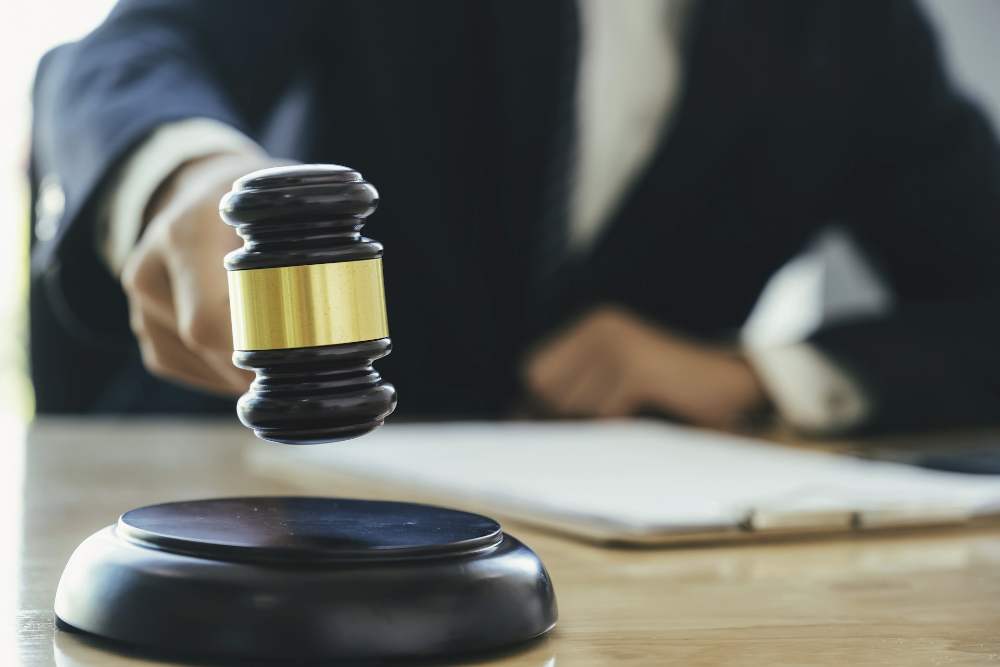Criminal trials are complex proceedings where the fate of the accused hangs in the balance. While many assume that a trial always ends in a verdict, there are instances where cases can be dismissed mid-trial. This blog post examines the various scenarios that could lead to a case dismissal during trial, shedding light on the intricacies of the legal system.
Contents
Insufficient Evidence
The prosecution must prove guilt beyond a reasonable doubt. If the evidence presented fails to meet this standard, the judge may dismiss the case. This can happen if key witnesses fail to testify or if crucial evidence is deemed inadmissible.
Sometimes, the prosecution’s case may crumble under cross-examination. If their evidence is shown to be unreliable or contradictory, it could lead to a dismissal. The defense can motion for dismissal if they believe the prosecution hasn’t met its burden of proof.
Procedural Errors
Trials must adhere to strict procedural rules. Violations of these rules can result in case dismissal. This includes improper jury selection, misconduct by court officials, or errors in handling evidence.
Procedural errors can also occur if the defendant’s constitutional rights are violated. For example, if evidence was obtained through an illegal search, it may be suppressed. If this evidence is crucial to the prosecution’s case, dismissal may follow.
Prosecutorial Misconduct
Prosecutors are bound by ethical standards and legal obligations. Misconduct can lead to case dismissal. This includes withholding exculpatory evidence, making improper statements to the jury, or engaging in discriminatory practices.
If prosecutorial misconduct is severe enough to prejudice the defendant’s right to a fair trial, the judge may dismiss the case. This serves as a safeguard against abuse of power and ensures the integrity of the judicial process.
New Evidence Favoring the Defendant
Sometimes, new evidence emerges during trial that strongly favors the defendant. If this evidence casts serious doubt on the defendant’s guilt, it may lead to dismissal. This could include DNA evidence, alibi confirmation, or witness recantations.
The defense can present this new evidence to the court and argue for dismissal. If the judge finds the evidence compelling enough to undermine the prosecution’s case, they may grant the motion to dismiss.
Statute of Limitations
In some cases, the statute of limitations may come into play during trial. If it’s discovered that the time limit for prosecuting the crime has expired, the case must be dismissed. This can happen if new information about the timing of the alleged offense comes to light.
The defense can raise this issue at any point during the trial. If proven, it results in an immediate dismissal, as the court no longer has jurisdiction to hear the case.
Lack of Jurisdiction
Courts must have proper jurisdiction to hear a case. If it’s determined during trial that the court lacks jurisdiction, the case will be dismissed. This could occur if the crime was committed in a different jurisdiction or if federal charges are mistakenly tried in state court.
Jurisdictional issues can be complex and may only become apparent as evidence is presented. Once identified, they typically result in immediate dismissal, though the case may be refiled in the proper court.
Violation of Speedy Trial Rights
The right to a speedy trial is constitutionally protected. If there are unreasonable delays in bringing the case to trial, it may be dismissed. This right ensures that defendants aren’t held indefinitely and that evidence remains fresh.
During trial, if it becomes clear that this right was violated, the defense can motion for dismissal. The judge will consider factors such as the length of delay, reasons for delay, and any prejudice to the defendant in making their decision.
Conclusion
While dismissals during trial are not common, they do occur under various circumstances. Understanding these possibilities highlights the complexities of the criminal justice system and the importance of upholding legal standards throughout the trial process.
Whether due to evidentiary issues, procedural errors, or constitutional violations, the potential for dismissal serves as a crucial check on the power of prosecution and ensures fair treatment for defendants.

